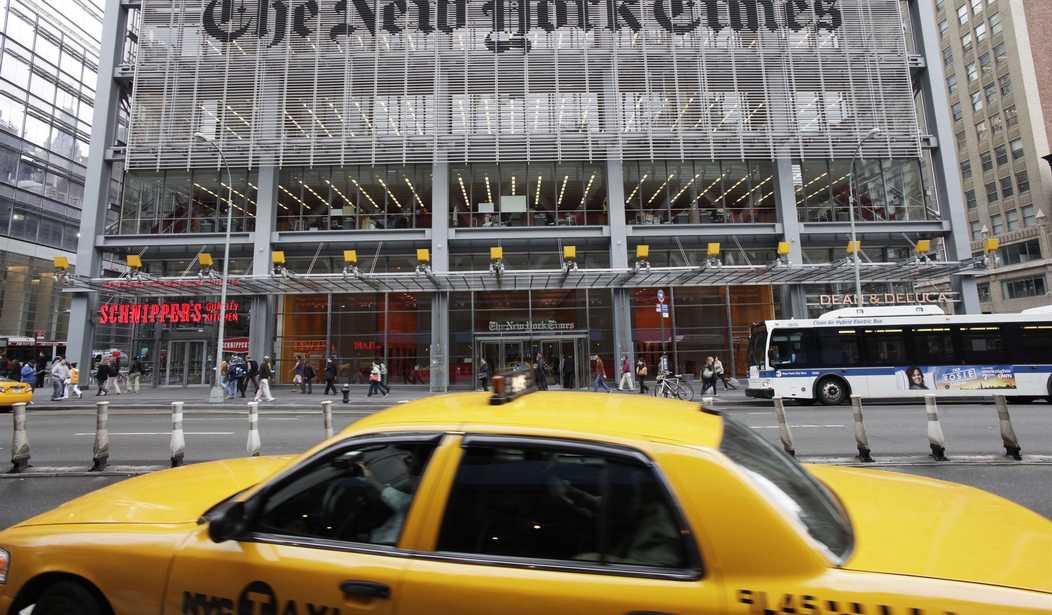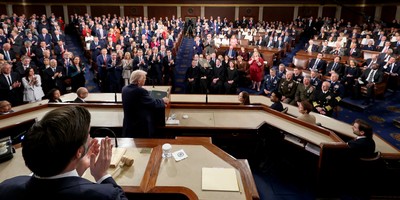In my last column -- "The New York Times Best-Seller List: Another Reason Americans Don't Trust the Media" -- I used my recently published book as evidence that The New York Times best-seller list is not a best-seller list.
I pointed out that the book, "The Rational Bible: Exodus," the first volume of my commentary on the first five books of the Bible (the Torah), did not appear on The New York Times best-seller list even though it was:
--No. 2 on the Wall Street Journal nonfiction best-seller list.
--No. 2 on the Publishers Weekly nonfiction best-seller list.
--No. 2 in hardcover nonfiction on Nielsen BookScan, which tracks 75 to 85 percent of book sales. According to BookScan, the book outsold 14 of the 15 books on The New York Times hardcover nonfiction list.
--No. 1 on Ingram, the largest book wholesaler in the country.
And, as of this writing, "The Rational Bible" fluctuates between the top 10 and top 40 of all books -- on all subjects -- on Amazon.
There are, therefore, only two possibilities: All other indicators of book sales in America including all objective ones (Ingram and BookScan) are wrong, or The New York Times best-seller list is wrong.
Apparently, such evidence and other arguments I offered were strong enough to compel The New York Times to defend itself in a series of tweets from NYTimes Communications. The liberal internet site Mediate headlined its story on the tweets "NY Times PR Roasts Conservative Author Dennis Prager For 'Hypocrisy' in Rare and Stunning Tweetstorm."
But The Times' "rare and stunning" response only strengthened any honest observer's conviction that its best-seller list isn't a best-seller list -- that due to ideological reasons, simple incompetence or both, it is actually the least accurate major best-seller list in the country.
Recommended
The Times tweeted, "Political views held and expressed by authors have no bearing on our rankings."
Few conservatives in the book industry believe that. For example, Regnery Publishing, the publisher of my book, announced a year ago The Times list is so ideologically biased Regenery would no longer announce whether any of its authors are New York Times best-selling authors. And even fewer in the religious community believe it: Does The New York Times regularly include sales data from Christian bookstores, for example?
Of course, in order to assume The New York Times is unbiased when it comes to conservative and religious books, one has to assume The Times is unbiased when reporting on other conservative and religious matters. And it isn't.
But even if one does believe The Times has no ideological agenda, its best-seller list is still the most inaccurate of all major best-seller lists. That's why none of The Times' tweets contradicted anything I wrote. Instead The Times did what progressive institutions and individuals routinely do when differed with: attacked the individual.
"Hypocrisy alert," The Times tweet warned. "@DennisPrager wrote a dishonest essay about our best-sellers lists. He claims, 'I have long known it isn't a best-seller list, and I don't pay attention to it.' Though he lists 'NYT best-selling author' on his twitter bio and his own site."
Actually, I did write that a previous book of mine was on The Times list. And I don't pay attention to the list unless I have just published a book. Moreover, why does listing that I am a New York Times best-selling author render me a hypocrite? Like every author, I write books in the hope that many people will read them, and I know listing "New York Times best-selling author" helps sell books.
Anyway, what connection is there between my alleged hypocrisy and whether The New York Times best-seller list is legitimate? The answer, of course, is there isn't one. What The Times did is what the left usually does to those with whom it differs and cannot effectively respond to -- slapped on a morally defective label. It's so common a practice I long ago gave it an acronym: SIXHIRB, Sexist, Intolerant, Xenophobic, Homophobic, Islamophobic, Racist, Bigoted. "Hypocrite" fits right in.
Most importantly, The Times tweets label my column as "dishonest" and declare that it "has no basis in fact and includes a number of factual inaccuracies."
Yet The Times provided but one -- dubious -- example of an inaccuracy: It said it doesn't have Jordan Peterson's No. 1 best-selling nonfiction book anywhere on its list because the book is published in Canada. Apparently, a book published by Random House Canada doesn't qualify as an American-published book (even though the Random House Canada parent company, Random House, is an American publisher). But doesn't that only reconfirm that The New York Times best-seller list is not actually a best-seller list? The others list the book.
The reason The Times doesn't offer any other example of inaccuracy in what I wrote is that it can't. Instead it offers this statement: "Rankings on different organization's best-seller lists vary for a variety of reasons. Other organizations rely on book sales from different reporting stores and reporting periods."
In other words, the Wall Street Journal, Publishers Weekly, USA Today, Ingram and BookScan are all wrong. Only The New York Times best-seller list is right.
I am sure most of its readers believe that. But most of the country doesn't. And so long as The Times refuses to open up about how it arrives at its unique numbers, no one should believe it.
























Join the conversation as a VIP Member